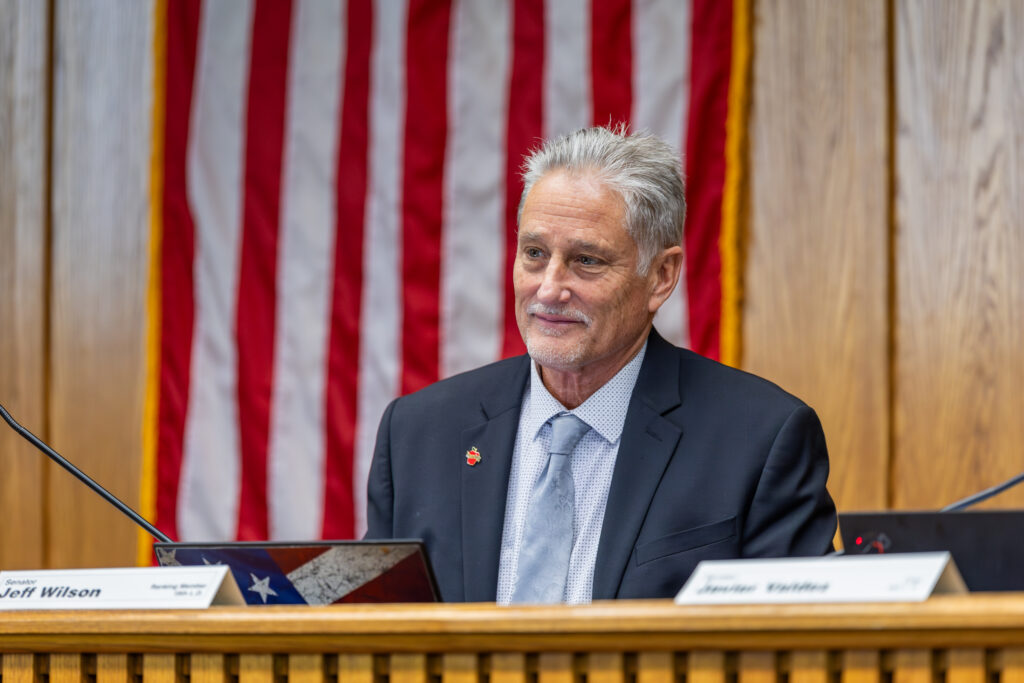Note: The following op-ed appeared in the Cheney Free Press and other Eastern Washington weeklies the week of June 4, 2025.
Sen. Jeff Wilson, Cheney Free Press
Last year the Washington Legislature passed one of those high-handed virtue-signaling bills so popular with our green friends in the majority party. HB 1589 allows the state’s largest private utility to exit the natural gas business and shunt billions of dollars in shutdown costs to its customers. Gas and electricity prices will soar in Puget Sound Energy’s service territory, business will be disrupted and homeowners will face enormous costs to replace gas-powered appliances at their own expense.
Now, back in 2024, everyone knew a million PSE customers would be livid when they found out about it. So the legislative Democrats who authored this bill did a clever thing. They added what we call an “emergency clause.” They declared the bill “necessary for the immediate preservation of the public peace, health or safety, or support of the state government and its institutions.” This boilerplate phrase allowed the bill to take effect immediately upon the governor’s signature. Most importantly, it meant the people were prevented from filing a referendum to overturn it.
What happened last year with HB 1589 is really the poster case for emergency-clause reform. Increasingly this exception, permitted by the constitution, is being misused to prevent voters from overturning legislation they oppose. This year one in eleven bills introduced in the Washington Legislature contained an emergency clause, 169 in all, and 47 were signed into law. These included the year’s most controversial bills and the ones the people would most likely overturn if they could, enormous tax increases and odious policy measures increasing the power and intrusiveness of state government.
Under our constitution, a bill normally takes effect 90 days after adjournment of a legislative session. During this window, the public can petition to overturn the new law, by collecting signatures to place a referendum on the ballot and giving voters an up-or-down choice. The signature requirement, 162,258 at present, is only half of what is required for an initiative, and referendums cannot easily be blocked by lawsuits and interference from the courts.
Clearly some bills address emergencies and should take effect immediately, like a measure this session funding wildfire relief. But most emergency clauses can’t pass the straight-face test, and are a ruse to prevent uppity voters from overturning the Legislature.
Take the natural gas bill. The polar ice caps weren’t going to melt if we waited 90 days. The emergency clause forced opponents to file an initiative, at double the expense. Although the people voted overwhelmingly for the initiative last fall, it has been mired by court challenges and may never take effect.
That’s just one example. Our majority colleagues passed the capital gains income tax in 2021 with an emergency clause, even though the tax would take two years to implement. Hardly an emergency, and while the bill supported state government, that’s sort of a catch-all excuse. This year’s most controversial policy bill declares that repealing the 2024 parental rights initiative is somehow an emergency. An interesting case involving that bill will soon be heard in Thurston County Superior Court, as initiative promoter Tim Eyman argues Secretary of State Steve Hobbs should face a recall election for not allowing a referendum to proceed. However, this issue has more to do with the authority of state elections officials than the central problem, the Legislature’s abuse of the emergency clause.
For many years, the state Supreme Court was willing to review challenges to emergency clauses and threw them out about half the time. But starting with a case in 2005, it has deferred to lawmakers to decide when an emergency exists. The Court should stop abrogating its responsibility. We also should pass reforms requiring findings of emergency that can be reviewed and challenged. But first things first, I think the Democrats who presently control the Legislature should re-read the first line of the state constitution, which says government derives its power from the consent of the people. The people’s voices should never be put on mute.
– Sen. Jeff Wilson, R-Longview, is ranking Republican on the Senate State Government, Tribal Affairs and Elections Committee.











